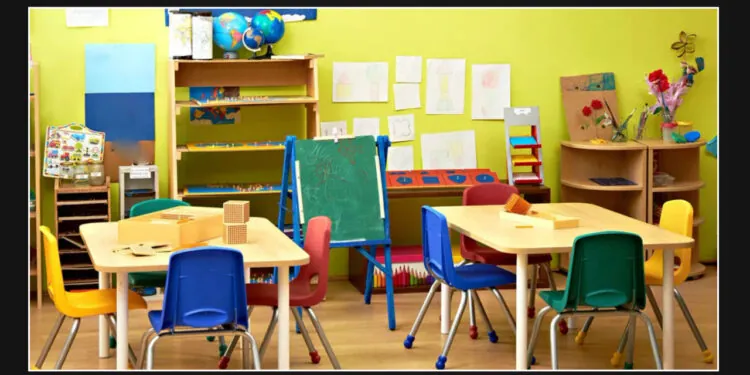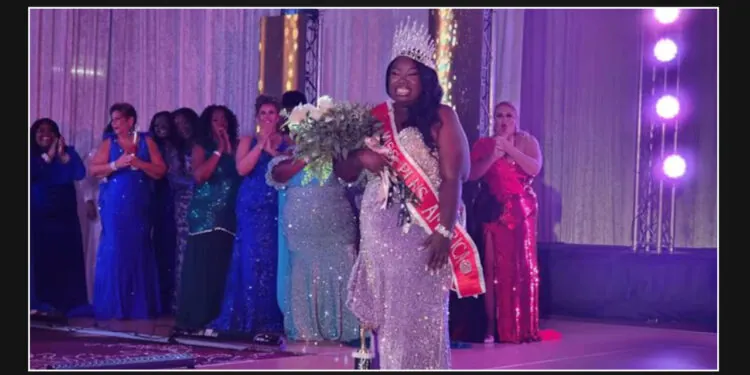According to a tri-county advocacy group, implicit and systemic racial bias could be contributing to the disproportionate number of Black preschool students being expelled from classrooms in South Carolina.
The Beloved Early Education and Care (BEE) Collective, which operates from Charleston, has released a report on July 30. The report, which is supported by the American Heart Association’s Voices for Kids initiative, suggests several measures that policymakers, educators, and parents can adopt to curb the trend.
According to data compiled by the U.S. Department of Education Office of Civil Rights for the 2017-18 school year, Black children in the state’s public schools who are enrolled in early childhood classrooms make up only 39% of the total, yet they account for 61% of early learners who have received one or more suspensions. The BEE Collective and its research partner Impact Stats reported this in March, highlighting the concerning disparity in the treatment of Black children in early learning environments.
The second analysis on pre-school suspension, titled “Facing A Broken System: A Crisis of Discriminatory Suspension and Expulsion that Harms Black Children in South Carolina and Charleston County,” has been released by Impact Stats in Buffalo, N.Y. The report sheds light on the unjust treatment of Black children in the state and county, highlighting the discriminatory practices of suspension and expulsion that are causing harm to their education.
Report makes 10 suggestions
The group has put forward 10 recommendations, with a particular emphasis on elected school board members actively seeking out more Black early child educators, especially males. The group has suggested that educators should prioritize building trust and stronger relationships with families, while parents should aim to develop better connections with their children’s teachers. These are just a few of the measures proposed by the group.
According to the new report’s analysis, the higher rate of Black preschool children being removed from classrooms in Charleston County School District (CCSD) and other parts of South Carolina can be attributed to the unconscious bias of educators.
Dr. Melodie Baker, the President and CEO of Impact Stats, strongly believes that suspending a preschooler from their learning environment during crucial developmental stages can have severe and long-lasting effects. According to her, this practice not only undermines the purpose of early education but also sends a negative message to the child, who is often Black, that they are not safe to learn and belong. Moreover, it can also create a similar bias in the minds of their peers, who might become future educators, police officers, and adults, thus perpetuating such prejudices.
According to Baker, this pattern is responsible for the creation of unconscious bias. It is important to note that preschool suspensions based on discrimination are not a result of children’s behavior, but rather the decisions made by adults. As Baker suggests, in order for things to change, we must first acknowledge this fact.
Charleston County data
The BEE Collective has utilized the state’s Freedom of Information ACT to request the CCSD to disclose records of the suspension of early childhood education programs for children aged 5 years and below, for the previous five school terms. The organization is seeking information related to the student’s age, race, sex, school, and the specific child development program in which the student is enrolled.
According to Treva Williams, the campaign manager for the group, acknowledging the existence of personal bias is the first step towards correcting suspension errors with preschool children. She believes that taking corrective measures to address this bias can have a positive impact on other areas as well. “We need to be willing to recognize our mistakes and take action to address them,” she said.
According to Baker, the 33-page report utilized a social attitude questionnaire, the Implicit Association Test (IAT), which was conducted by Project Implicit at Harvard University. The results of the study revealed that South Carolina scored second highest in the country for pro-White attitudes, with Mississippi taking the top spot.
According to Baker, more than 1.5 million individuals have taken the IAT online since it was first introduced in 1998. The findings have demonstrated elevated IAT scores, indicating an increased tendency towards negative racial bias against Black people and those with darker skin tones, particularly in the southern regions of the United States.
As of 5 p.m. on August 1st, the Charleston City Paper reached out to CCSD for a response but did not receive one. The article will be updated with their reaction as soon as it becomes available.
Senate proposal under study
On February 28, Senate Bill 1108 was filed by S.C. Sens. Brad Hutto, D-Orangeburg, Katrina Shealy, R-Lexington, and Mike Reichenbach, R-Florence. The bill aims to mandate education and training for school administrators, teachers, and staff to ensure efforts are made to maintain student enrollment, as well as to collect relevant data on school suspensions and expulsions. Hutto stated that since the General Assembly is not expected to return this year, the bill will have to be reintroduced in December for consideration in 2025.
In mid-January, several state agencies and child advocacy groups testified before the Joint Citizens and Legislative Committee on Children in Columbia, highlighting the importance of keeping children in school even when they misbehave. Based on this testimony, the senators filed a bill.
Hutto emphasized the need for studying the issue of pre-school suspensions in order to determine the reasons behind the removal of children from classrooms. He believes that data collection is necessary to identify whether the suspensions are a result of behavioral issues or if teachers require more training.











